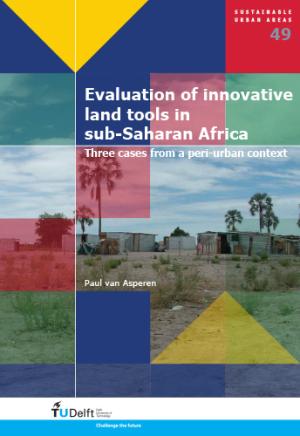Hosted by
Evaluation of Innovative Land Tools in Sub-Saharan Africa: Three Cases from a Peri-Urban Context
Synopsis
Sub-Saharan Africa is urbanizing rapidly, but most countries lack appropriate tools to manage their urban growth. This creates both risks and opportunities for prospective land holders, resulting in a tangle of insecure land rights and claims under multiple tenure systems. Recently, innovative land tools have been proposed and implemented to formalize land tenure. It is envisaged that tenure security for land holders will increase and in turn contribute to poverty reduction.
This study evaluates such tools in three peri-urban areas in Lusaka (Zambia), Oshakati (Namibia) and Gaborone (Botswana), with a focus on the perspective of the land holders. The author concludes that the tools are to some extent pro-poor, and makes recommendations for further improvements. These innovative land tools are also considered a necessary addition to conventional and administration tools. This study makes valuable reading for academics, policy makers and practitioners within the land administration domain and related disciplines.

